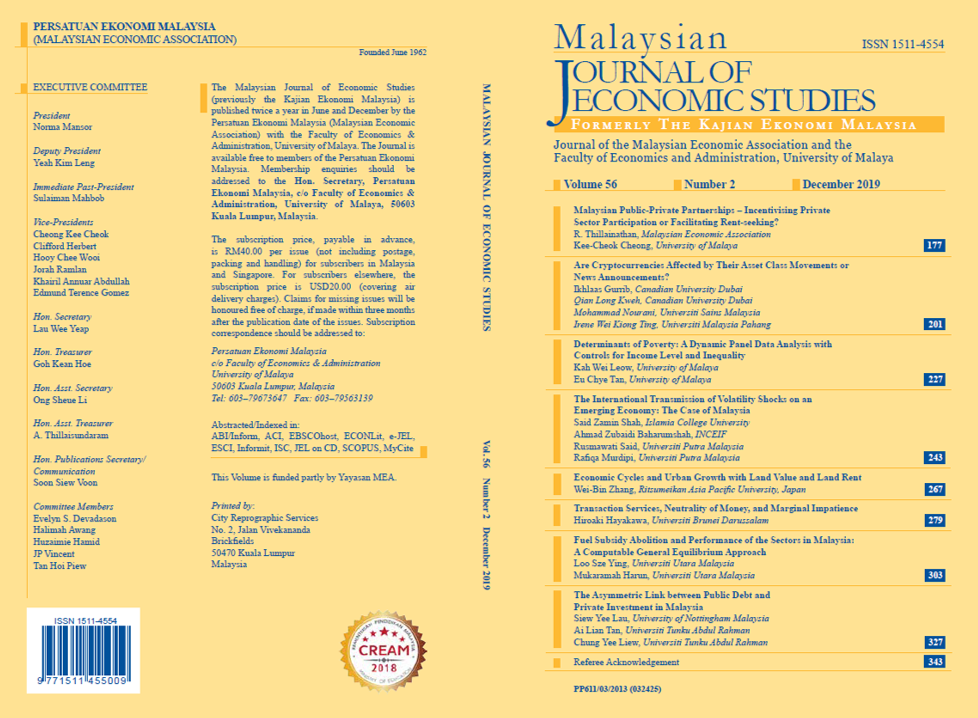Malaysian Public-Private Partnerships – Incentivising Private Sector Participation or Facilitating Rent-seeking?
DOI:
https://doi.org/10.22452/MJES.vol56no2.1Keywords:
Off-budget expenditure, private finance initiative, privatisation, public-private partnership, special purpose vehicleAbstract
While public-private collaboration can be traced to ancient times, the privatisation drive of Reagan–Thatcher, with endorsement from multilateral institutions, breathed new life into the initiative. Even as critiques were levelled at privatisation, subsequent years saw policies broadened to embrace other variations of public private partnerships (PPPs) including the private finance initiative (PFI). Countries experimenting with PPPs have come up with their own versions that differ substantially from the original implemented in the UK. Malaysia has also endorsed PPPs from its 9th Malaysia Plan, although privatisation of a fashion began even earlier. Further, Malaysia’s PPPs have evolved from early privatisation to private finance initiatives (PFIs) that even more than with privatisation, are cloaked in secrecy. What little that is known, however, reveals an alarming effort to benefit the private parties. This is particularly evident in the over-pricing of contracts. From the evidence, it is hard to avoid the conclusion that Malaysia’s PFI initiatives were designed to benefit vested interests at the expense of the taxpayer, while simultaneously keeping the size of the direct debt of the federal government low. Far from being the bringer of benefits as officially advertised, PFIs have been a disaster both fiscally and as instruments of rent-seeking.







